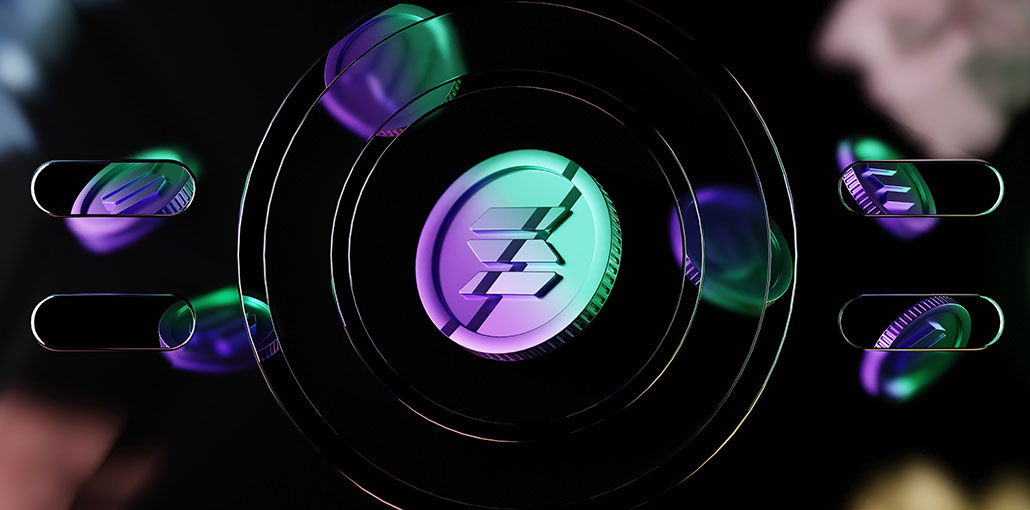To store, secure, and manage data and digital identity, companies all over the world are deciding to choose a secure platform like Blockchain so that they can protect their data that is spread across multiple providers.
Key Details of Blockchain
- The term Blockchain may sound scary or mysterious. Its literal meaning is a chain of blocks of information. To understand its meaning correctly, we need to go back to earlier times, starting from the web. The internet aims to store and distribute the information of a large number of people. Blockchain is also invented with similar goals but is a specific type of database.
- It is very much different from typical databases in the way they help in storing information. Well, blockchain’s purpose is to store data in blocks and then chain them together.
- Whenever the new data comes, first of all, it enters into a fresh block. After filling the block with data, it is chained onto the existing block to group the data together in chronological order.
- It is possible to save various types of information on a blockchain, but the most common is a ledger for transactions.
- Some examples involve Ripple, Bitcoin, Etherum.
- This technology utilizes smart contract protocol, which is immutable; it may stay permanent after the deployment.
- Proper validating and testing have become more crucial for blockchain applications compared to other applications.
If you are looking for some critical factors for testing your Blockchain wallet or blockchain applications, you need to stay on this page to acquire the important information regarding this concept.
Major Factors That You Need to Consider for Testing Blockchain Wallet
Smart Contracts
Smart contracts are lines of code saved on a blockchain and implemented automatically once the predetermined terms and conditions successfully meet. They are the most basic programs, which may be run by those who already have participated in the development part.
The benefits of smart contracts are most noticeable in business partnerships, which they are mainly utilizing to implement a kind of arrangement; likewise, both parties can become confident when the results come without intermediary involvement.
Keep in mind, after sending the arrangement to a blockchain, its substitution is not possible. Smart contracts consider blockchain technology for the validation, verification, capturing, and enforcement of terms that are shared between multiple parties.
In the blockchain, smart contracts support transactions that are traceable, irreversible, and transparent. It allows anonymous parties to carry out their agreements without the need for external enforcement, central entity, or the legal system.
Blockchain is an excellent platform for smart contracts as it allows encryption of the data and records the information in the blocks, which can never be deleted, modified, or lost. From cross-border financial transactions, contractual enforceability, regulatory compliance, material provenance, home buying, document management, supply management to many other applications, smart contracts are ideal for performing functions in a wide variety of businesses/industries.
Smart contracts are also common in banking and credit services, decentralized storage systems, logistic processes, renewable energy industries, and many more.
Also read: How To Apply Machine Learning In Your Mobile App
Importance of Testing in Smart Contracts
Smart contracts are verifiable, immutable, and autonomous pieces of code capable of deployment, and they run on blockchain networks such as Etherum.
No change is possible on a verified transaction or a deployed smart contract due to blockchain’s immutable nature. Millions of dollars are transferred by smart contracts in the Ethereum blockchain. In the case of a faulty smart contract, companies can experience a huge monetary loss.
Thus, it is the responsibility of smart contract developers to check the correctness of their code and perform blockchain testing before deploying the code on the blockchain.
How to Perform Testing on a Smart Contract
- Validating the methods – It is critical to validate the methods in a smart contract, which is similar to API testing. One may use decision tables, method validations, test-driven development, boundary value analysis, test-driven development, behavior-driven development techniques.
- Validating the transmission and encryption process of smart contracts – The validation of encrypted smart contracts sent to various computers through a distributed network of ledgers that are also known as distributed ledgers. There may be two scenarios made for completing the validation process. First, the contract is sent through a public permissionless blockchain to get a network update of a bitcoin. In this process, there is no need to check the prior relationship with the ledger, likewise bitcoin. Another way is to do it through a hybrid distributed ledger platform such as R3 that is recognized by the ledger and may be based on permission.
- Verifying Smart Contracts Processing – Validation of smart contracts processing is a bit complicated. In this process, financial institutions get the Smart Contract API as an executing code. Then, the network gives updates to distributed ledgers to maintain the records of the implemented contract. After that, this process ends with the monitoring stage in which the terms of the smart contracts are carefully checked and fulfill the compliance needs. It is not easiest to get this task done with the help of a single party. To perform the regulatory tests, there must be a necessity for the testing expert who has knowledge of several business processes and knows about the concept of the smart contract. Apart from that, performance testing or a specific type of testing should also be done on smart contracts.
Transactions Accuracy
It is essential to ensure that your transactions are appropriately registered on the blockchain. Mostly the verification of transactions is performed on three locations: the blockchain, the sending wallet, and the receiving wallet.
When choosing the wallet tool for testing or checking the transactional accuracy, it is vital to give importance to a consistency that should be better maintained to ensure that the flow of money is better moving from one place to another location.
Moreover, one should identify the block explorer to know the exact amount of crypto involved in the transacting address. There are two ways to check for transactions. One is via the address, and another is through the hash.
There are two different bitcoin blockchains that you can consider for testing that are the mainnet chain and the testnet chain. The mainnet chain is suitable for the real bitcoin chain. Testing here may perform on the real digital currency.
However, Testnet transactions also function in a similar way, but it considers test currency which has no value. To test transactions, Testnet can be a great way. It enables you to send as much as you desire because here your organization doesn’t charge anything.
All you need to have funds to get the testing done. One can use a faucet that may provide testnet funds, and these are websites set up provided by other bitcoin developers to share the funds. Need to Confirm Blockchain transactions.
One needs to confirm the blockchain transactions before allowing them to finalize. Some wallets include the rules that you need to follow when it comes to checking whether the transactions are displaying, completed, or pending. Make sure to confirm the blockchain transactions carefully as it has various numbers of blocks.
To get this step done, you can check the block explorer that may allow you to check the number of confirmations on the basis of transactions. Those who have cryptocurrency should give importance to block confirmation because you are not allowed to spend your funds without confirmation.
Security
Hacking the bitcoin network is very much difficult. Still, there is a risk because coins can be stolen from a wallet in digital currency exchange.
The best part of the blockchain is it doesn’t store the data in a central server but saving in a wide variety of computers that may continuously verify and check by the service providers to ensure that records are placed safely and accurately. Thus, if a hacker tries to breach, first of all, he/she has to understand a vast number of servers where the information is stored.
It may be possible for hackers to steal from a room with a single vault. However, if attackers do the same task from hundreds of rooms with vaults, they have to acquire more information to access the vault.
According to the past reports of Forbes, the bitcoin and cryptocurrency community incredibly protects its privacy. Still, massive data of bitcoin and cryptocurrency users leaked online.
Thus, how can you trust the privacy of blockchain wallets? It would be great if you perform testing on the blockchain-based apps because it will help you to ensure that the basic transaction structure is not corrupted and the user’s most sensitive information and payments are secure.
One should conduct the vulnerability analysis to protect the bitcoin wallet app and should consider some factors before testing, such as access and authentication, private keys, authentication of provided data, wallet signature process, a secure hash with a consensus algorithm. You also need to check the OWAPS guidelines to perform testing on mobile and web applications.
Also read: 10 Best Helpful Tools For Blockchain Development In 2021
Node Testing
The functions of the blockchain work between the peer-to-peer distributed network and network nodes, and both may use a particular protocol for authentication. Their basic purpose is to test various nodes and get a confirmation regarding the approval blocks so that it becomes possible to make transactions successfully.
There is a need to perform independent testing on all heterogeneous nodes to ensure the quality and get a guarantee that all exchanges will save in the best possible flow in every situation.
There are two key factors that you can check below to implement your testing strategy in the right way.
- Perform autonomous testing on individual heterogeneous nodes.
- Verify the validity of the block while making large transactions.
Wrapping Up
If you have a blockchain wallet app for helping people buying ETH, Crypto, and bitcoins, always consider the key factors that we’ve mentioned above.
By following such testing strategies and executing several testing types from contract testing, node testing, security testing, functional testing, integration testing, performance testing to any specialized blockchain testing, you can address the common challenges that many people faced with blockchain applications.
For instance, when you don’t make your application secure, you may face hacking issues because such apps are more vulnerable to attacks at the user level, network level, and mining level.
In the case of low load and performance practices, you get little or no insight into your blockchain wallets or application. Without excellent performance testing, you can’t easily assure the customer that it will perform well with specific workloads, during production as well as in any type of network situation.
When you don’t complete the testing based on the blockchain size or block size, the chances are high your application will experience a failure, or you may face many business issues.
Apart from that, choosing the right mix of blockchain testing tools are necessary to protect digital identities, manage and verify online data, and give as many benefits to industries like healthcare, insurance, finance, retail, supply chain, communications, media & entertainment, which use this technology for business purposes.










Leave a comment